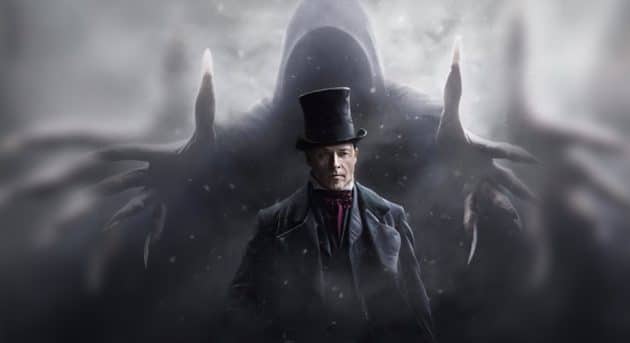A morality tale: the importance of the arts in the post-COVID world
To draw an analogy between the Tragic Circle and the current Covid-19 crisis, live theatre stands at a climactic moment within the drama; that is to say, we are at a critical juncture, a turning point in events, with the future by no means certain. Yet I am also struck by the parallels between live theatre’s current predicament and that of one of Charles Dickens’ most memorable characters: Ebenezer Scrooge. Confronted with the solicitations of three spectres, this miserly curmudgeon is shown the panorama of his past, the dire conditions of the present, and finally a refulgent opportunity for redemption, an insight into how human action can alter the timbre of what lies ahead. In this age of catastrophic real-life stories of human tragedies, the arts can be a soothing balm. Indeed, the World Health Organisation (WHO) has deemed it so. Like Scrooge, we need to learn the lessons of the past, acknowledge the present, and take action to forge a more positive future.
The Ghost of Christmas Past
The now-clichéd and eye-roll-inducing adjective ‘unprecedented’ is often bandied about as a catch-all term to describe these scrofulous times. This description is not entirely accurate: ever since Thespis jumped on the back of a cart circa C6th BC/BCE and proceeded to recite poetry – thus giving birth to the concept of ‘acting’, theatre has wrestled with threats imposed by disease and pestilence.
The history of theatre has this to teach us: theatre is a survivor. And no period in history exemplifies this more than the life-span of the unparalleled William Shakespeare. When Prince Escalus bellows, “A plague o’ both your houses!” to the ever-brawling Capulets and Montagues in Romeo and Juliet, he is revealing something of contemporary society. Yet this is a rare reference to disease in literature of the time, suggesting that Elizabethans and Jacobeans accepted plagues as a part of life. Shakespeare himself adapted to circumstance and, when theatres were closed due to the rising number of plaque-induced deaths, he turned his hand to writing poetry. I guess we have the plague to thank for Shakespeare’s sonnets. His birthplace, Stratford-upon-Avon, lost a quarter of its population in 1564. At one point, theatres were forced to close for a period of 78 months. When Shakespeare’s Globe reopened in 1605, following a period of closure, it was noted that many regulars were missing from the audience, especially groundlings, the most poverty-stricken patrons, known for spending their precious penny in the name of restorative amusement. This serves as a reminder that that live theatre was truly a form of inclusive entertainment.
Fast-forward a few centuries to World War I and we see theatre being hailed as a crucial morale-booster, with War Minister Lord Derby declaring live performances ‘a tonic for the troops’. No matter that Zeppelin air-raids were taking place at Waterloo Station, it was business as usual at the nearby Old Vic, despite its depleted audience. The deadly Spanish Flu of 1918 killed 5 million, yet there was no mass closure of theatres. Wise or not, what this does reveal is the hunger for live entertainment during times of depression and disease. This mentality prevailed through to World War II and its emphasis on live entertainment being widely accepted as playing a vital role: ‘theatre as usual’ was the mantra of the day. The current challenge is to strike a balance between this sentiment and the protection of human life.
The Ghost of Christmas Present
Throughout this crisis, it would seem that the fate of live theatre is on a heart-breaking downward trajectory. Financial struggle is not new to the cultural sphere: when the Conservatives came to power a decade ago, Arts Council funding was slashed by almost a third in their first budget. Almost everyone in the sector has been going above and beyond in the quest for survival: foregoing salaries, televising recordings of live productions, utilising the convenience of video conferencing facilities, organising outdoor performances, this list goes on. The financial losses resulting from the shut-down of the tourist-magnet that is the West End are no doubt eye-watering. Director Michael Grandage speaks of the current relevance of Shakespeare’s Hamlet, the embodiment of a man feeling lost in the world, in desperate need of catharsis. He could be referring to live theatre as a whole here. With unemployment levels reaching heights not witnessed for not far shy of a century, some would question the relevance of saving this sector. Yet history has shown that live performances have had a medicinal impact on the masses; in an age where lockdown-induced mental health issues are at critical levels, perhaps it’s time to recognize the benefits of rescuing this industry before it is too late. Just as the Ghost of Christmas Present shows Scrooge the impoverished reality of the world around him, Covid-19 is opening our eyes to the very real threat to a treasured art form.
The Ghost of Christmas Yet to Come
In the game of chess, there is a move known as ‘zugzwang’; this basically means that any of the available moves will result in an undesirable impact. It becomes a question of damage limitation. It seems to me that this is something like the point at which we now stand. What next? There are any number of Cassandras out there, prophesying doom for live theatre, and yet more who question its validity, even among the arts community. As an example, critic Charles McNulty has had this to say: “Call me callous but the fate of our hospital system straining under the weight of desperately sick patients [seems] more urgent to me than the budgetary death spirals of experimental theatre companies”. While no one would argue with this prioritization of human life, this does not negate the benefits of salvaging what we can of our vulnerable theatre culture: the mental tonic of communal congregation; the uplifting impact that no televised performance can emulate; and, on a practical level, active employment for a whole host of occupations, from back-stage staff to bartenders, to ushers. And let’s not forget that many of our current household names – Sam Mendes is just one example – derive from grassroots theatre. If this is decimated, where do we nurture incipient talent? The future of live theatre hinges, to a large extent, on the retention or relaxing of social distancing. Retaining this measure can only lead to increased ticket prices; consequently, this will lead to live theatre becoming an indulgence for the elite. So much for the groundlings; so much for inclusivity. Waiting in the wings just will not do – transformative support – financial, emotional and instrumental – is needed in the here and now.
Scrooge’s transformation is symbolic of a better, more humane tomorrow. The story ends with a benediction, asking for all and sundry to be blessed.
Let’s hope the god of live theatre heard that one.




